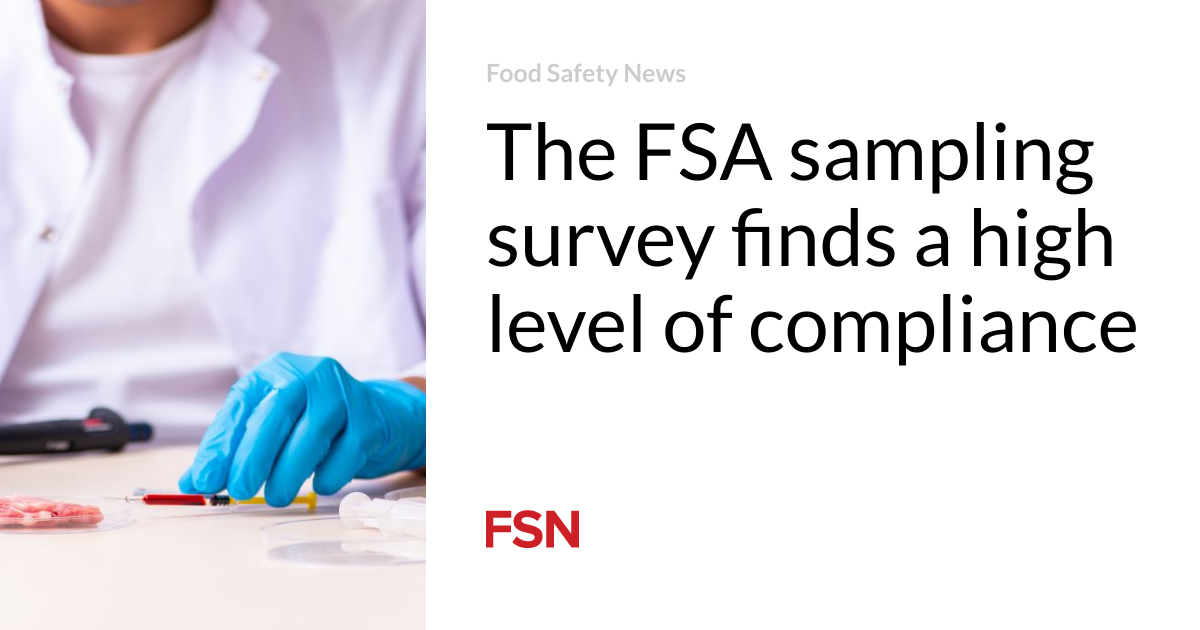A meals sampling train came across restricted safety concerns but considerations with declared meat hiss and added water.
Findings near from a survey printed by the Meals Standards Agency (FSA), which helps display screen emerging meals safety dangers. The survey, which took place from July 2023 to January 2024, sampled 1,025 products from 31 commodities purchased in England, Wales, and Northern Ireland.
The Retail Surveillance Sampling program targets areas of identified or potential threat. Samples were examined for undeclared allergens, contaminants, adulteration, inaccurate composition, or fallacious labeling.
Undeclared allergens were detected in three of the 180 meals examined. In all instances, this was because of milk protein (casein). Two undeclared milk cases were a loaf of bread and a packet of tortilla wraps.
Hen and burger outcomes
Composition assessments on 250 meat and meat products, in conjunction with pork sausages, ready meals (hen, beef, and lamb), tinned meat, beef burgers, and raw frozen hen, showed that 13 p.c didn’t discover necessities. Low meat hiss and undeclared or incorrectly declared added water were the commonest reasons for non-compliance.
Sixteen 16 out of 40 frozen raw hen samples were non-compliant because of undeclared, or extra, added water and labeling considerations. Ten of 24 frozen beef burgers were non-compliant, with eight having less meat hiss than declared and four containing higher fat levels than stated. The National Meals Crime Unit (NFCU) has communicated these outcomes to industry.
“While safety concerns were low, there have been several composition non-conformities, which mean that shoppers may be misled about the meals they are searching for,” said the FSA.
Non-authentic products included tinned meat and a beef burger sample with low levels of a totally different species of meat detected, a goat’s cheese that contained sheep DNA, and an Arabica coffee sample that also contained Robusta coffee.
One of the 30 oregano samples contained olive leaves in addition to oregano. In another sample, a hard, chalky pebble was came across.
Highlighted totally different findings
A total of 30 vegan biscuits and cereal bars, labeled vegan and with out any precautionary allergen labeling, such as may contain, were examined for milk or egg. One sample was unsatisfactory because of labeling, but milk and egg protein weren’t came across.
Pasta claiming to be made from Durum wheat was examined for authenticity. Three samples contained frequent wheat at a level greater than 3 p.c.
From 30 olive oil samples analyzed, one extra virgin olive oil didn’t meet the necessities to be named as such, and one coconut oil was also non-compliant for authenticity reasons.
Sixty free-from products were examined for the presence of the relevant allergen—peanut, milk, or gluten. Undeclared milk was detected in free-from-dairy red lentils and poppy seed crackers.
A range of 30 free-from-gluten oats and oat drink products were examined for gluten. Three samples had labeling considerations.
“This annual survey is designed to assist local authorities target their meals safety inspections so that they can exhaust their sources extra effectively to offer protection to shoppers higher. The increased compliance for some products such as olive oil are particular, and we can proceed to carry out targeted surveillance programs to name and get emerging dangers within the UK meals gadget to assist make skedaddle that the safety of shoppers,” said Professor Rick Mumford, deputy chief scientific advisor at the FSA.
(To hitch a free subscription to Meals Safety Information, click on here.)
